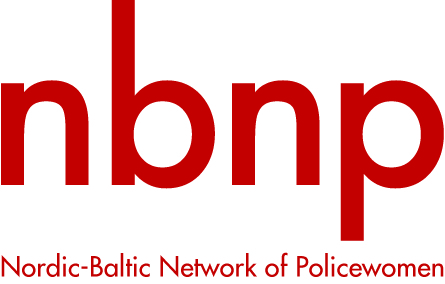The Estonian police hosted Nordic Baltic Network of Policewomen Board meeting on 30 -31.1.2024 in Tallinn Feb 16
nbnp.board · Comments: 0Kristi Hallas, Deputy Director General in the field of Development the Estonian Police and Border Guard Board welcomed NBNP Board to Estonia and gave an overview about the Estonian Police and Border Guard Board. K.Hallas talked about Women in policing, joint operations (JO's) and police management, as well as the Police's gender equality plan and the Police's Code of Ethics from the Estonian perspective. The presentation was enlightening and sparked a lot of interesting discussion among the board.
Domestic violence arouses emotions and discussion
Domestic violence in close relationships is seen as a common and constantly increasing phenomenon in all member countries. Especially among young people, it has been observed that the number of violent crimes has increased and the crimes have become more brutal.
Inese Volosevica mentioned that violent crimes committed by young people have also increased in Latvia. A worrying new phenomenon is how violence has become entertainment where acts of violence and abuse are recorded on video and posted on social media.
Margrete Vaage told about the state of serious violent crimes has in Norway increased rapidly. According to the January 2024 statistics alone, the number of serious violent crimes is a
Risk assessment as a tool for prevention of domestic violence
The Board discussed especially the prevention of domestic violent crimes and what kind of means the police organizations of different countries have to prevent these crimes. We also discussed means to better recognize a victim of domestic violence. Risk assessment and its importance as a necessary tool in the prevention of violent crimes were also discussed.
NBNP shares the concern about violence against women
Violence is a gendered phenomenon and it can be mental, financial, sexual or digital in addition to physical violence. NBNP is particularly concerned about violence against women.
The discussions around gender-based violence took an interesting turn around the Istanbul Convention. The majority of NBNP member countries have signed the Council of Europe´s Istanbul Convention, i.e. the Convention on preventing and combating violence against women and domestic violence. The agreement obliges the signatory countries to prevent and eliminate violence against women. https://www.coe.int/en/web/istanbulconvention.
Many countries also have their own programs to combat violence against women, e.g. Finland had a program to combat violence against women 2020–2023: The goal of the program was to reduce violence against women and improve the status of victims of violence. The goal of this program is to increase awareness of violence against women, improve services and support for victims of violence, develop the activities and cooperation of authorities, and strengthen legislation.
The law is a powerful tool in actions against violence.
Legislation is one of the most powerful tools against violence. Legislation can effectively both prevent violence and punish those guilty of violent crimes. In the Nordic and Baltic countries, the police is obliged by law to make an ex officio report on violence in a close relationship.
Carine Arntzen said that in Norway the police can assist victims of domestic violence by offering the victim an individual violence alarm, which is a low-threshold measure in form of a device carried by the threatened person to alert when necessary. In addition, there is a reverse violence, which is an ankle monitor placed on the perpetrator to restrict and monitor their movements. There has recently been a legal amendment in Norway, to simplify and increase the use of ankle monitors, or reverse violence alarms, so that this can be offered without a court order.
In all, this meeting both highlighted the measures already taken to combat violence, as well as the future trajectories of NBNP in this endeavour.
Written by Leena Lukala,
NBNP representative from Finland
Nordic-Baltic Network of Policewomen (NBNP) was constituted in Riga, Latvia, in April 2001. All the Nordic countries and all the Baltic countries are members and are actively participating in the work of NBNP.
The Board members represent police organizations from Nordic and Baltic countries.
The objectives of the network are to develop equal opportunities within the police, achieve gender equality in all ranks and fields of the police and encourage women for managerial positions in order to have more women in higher positions reflecting the percentage of policewomen within the police by:
Exchange information and knowledge about gender equality, discrimination and diversity;
Exchange professional experiences and knowledge in policing;
Exchange professional experiences and knowledge concerning female leadership;
Extend contacts with women`s networks nationally and internationally;
Contribute so that the police are a place where diversity is respected;
Contribute to the fight against all kinds of discrimination within the police.

Comments: 0